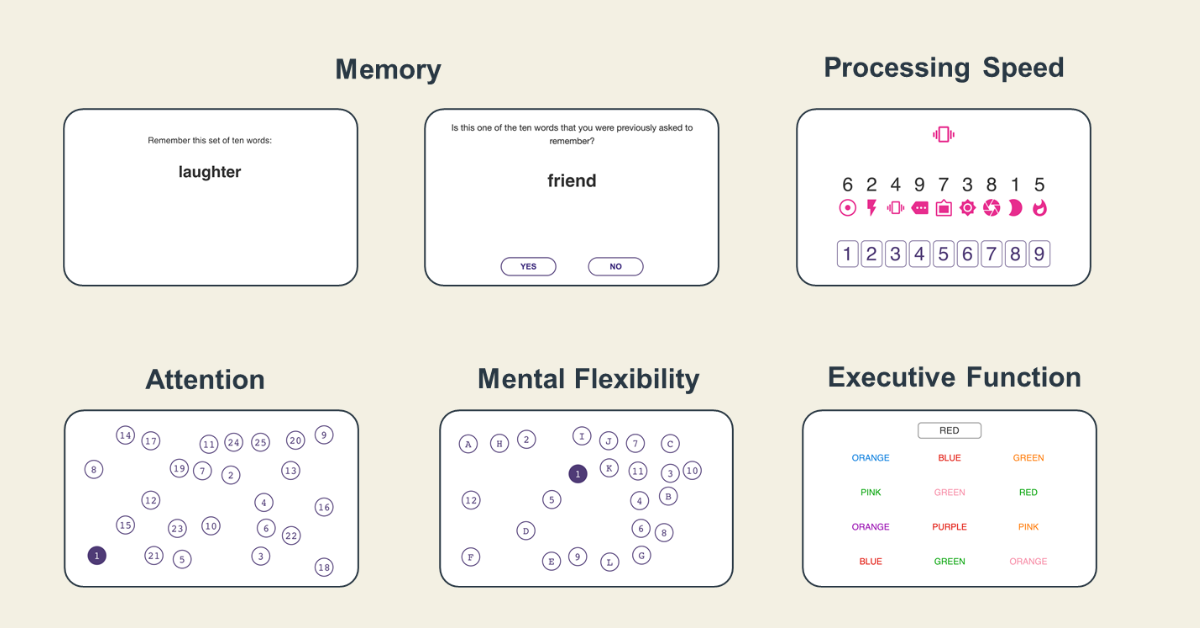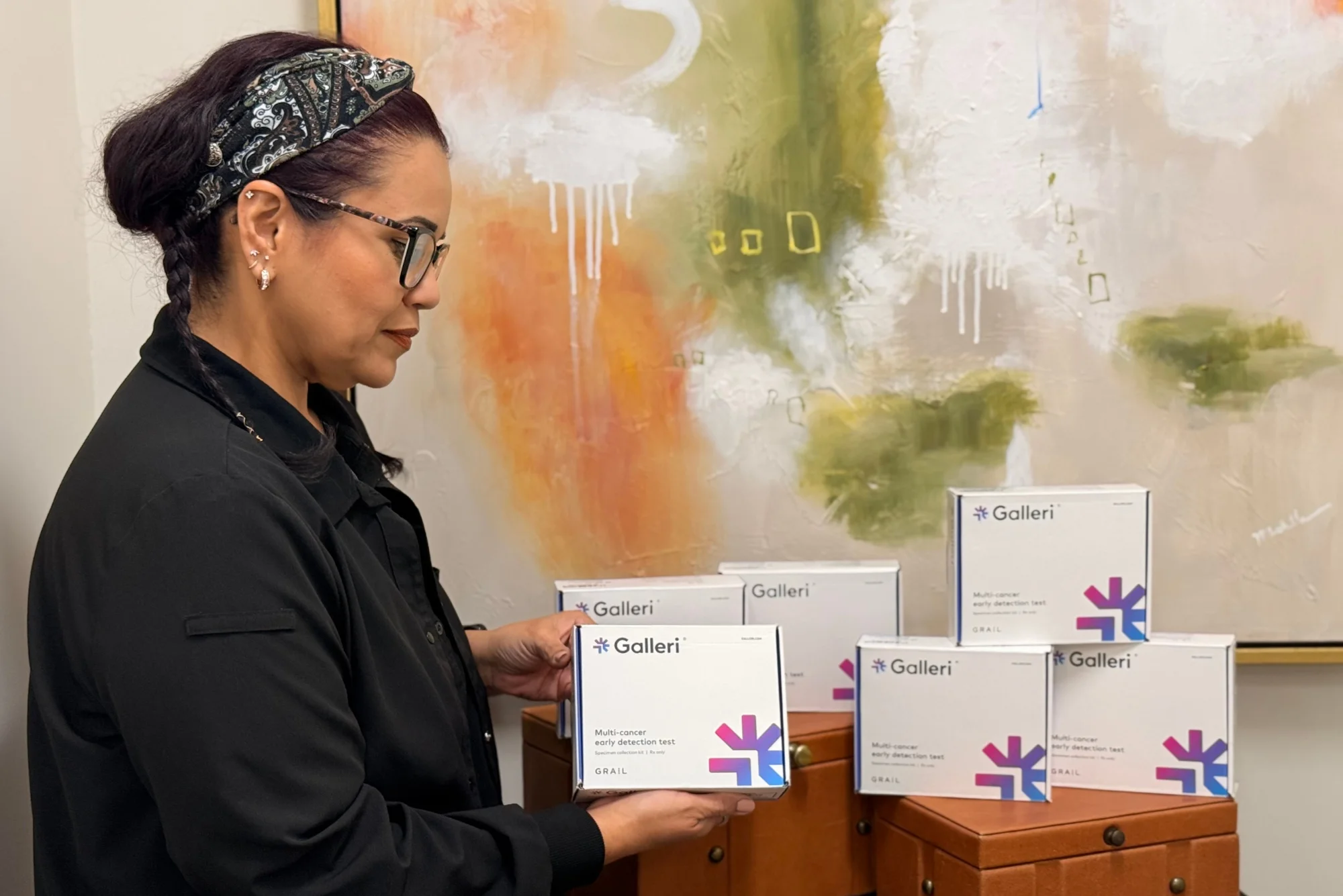
We all know the value of eating well, exercising, and getting enough sleep to maintain physical health. But what about your brain? Cognitive health deserves the same routine attention and proactive care. At Griffin Concierge Medical, we partner with BrainCheck to evaluate, track, and protect your cognitive function over time—so you can stay sharp, confident, and in control.
Why Brain Health Matters
As we get older, it’s normal to experience occasional lapses—misplacing your keys, forgetting a name, or losing your train of thought. But sometimes these early changes can signal something deeper, such as mild cognitive impairment (MCI) or early dementia.
Cognitive impairment is common, underrecognized, and often diagnosed late:
- Over 7 million people in the U.S. have mild cognitive impairment and don’t know it.
- Roughly 33% of individuals with MCI may progress to Alzheimer’s disease or dementia without intervention.
- Up to 40% of Alzheimer’s disease and related dementias may be preventable or delayed by addressing modifiable risk factors such as cardiovascular health, sleep, physical activity, and metabolic disease.
Early detection allows your Griffin physician to intervene sooner—helping maintain your independence, daily function, and overall quality of life.
How BrainCheck Works
BrainCheck is a simple, digital, clinically validated platform that evaluates key areas of cognitive function in just a few minutes. It measures memory, attention, processing speed, executive function, and more.

BrainCheck Screen™
A brief assessment (3–5 minutes) is used to quickly evaluate your cognitive health and determine whether further testing is recommended. Available in-office on an iPad, or remotely through a secure link you can complete at home.
BrainCheck Assess™
A detailed, 15-minute evaluation designed to identify subtle cognitive changes that may be associated with dementia-related conditions, including Alzheimer’s disease. Your Griffin physician may recommend this assessment following your initial screening, based on symptoms or clinical concerns. This test is typically best completed at home in a quiet, comfortable environment.
Additional Cognitive Screening Tools
BrainCheck also includes validated screeners for Adult ADHD, depression, anxiety, and other behavioral health conditions your physician may evaluate as part of your overall cognitive profile.
Designed With Your Comfort in Mind
BrainCheck is intentionally patient-friendly. It is interactive, digital, and easy to use—removing the stress and stigma often associated with traditional paper-based memory tests. The technology is FDA-cleared, supported by peer-reviewed research, and built to provide reliable results your physician can trust.
Tips for a Smooth Testing Experience
- Wear your glasses or contacts, just as you would when reading.
- Choose a quiet, familiar environment.
- Minimize background distractions.
- Take advantage of the practice sessions to get used to the format.
Before starting your assessment, inform your Griffin physician if you are colorblind, have significant visual impairment, or experience any visual movement disorders.
Top 5 Things You Should Know About Cognitive Decline
1. It’s More Than Forgetfulness
Cognitive decline affects more than memory. It can influence language, attention, decision-making, mood, and the ability to perform everyday tasks. Early signs are often subtle—such as difficulty multitasking, following conversations, or managing complex tasks.
2. Age Is a Risk Factor, but Not the Only One
While risk increases with age, cognitive decline is not inevitable. Genetics, cardiovascular health, metabolic health, stress levels, mental activity, diet, sleep quality, and social engagement all influence cognitive aging.
3. Early Detection Makes a Meaningful Difference
The earlier cognitive changes are identified, the more opportunities exist to delay progression, optimize brain support strategies, adjust medications, and improve long-term outcomes. Many screenings take less than five minutes and can be repeated over time.
4. Lifestyle Habits Have a Powerful Impact
Evidence strongly supports protective effects from regular physical activity, a nutrient-rich diet such as the Mediterranean diet, high-quality sleep, social connection, and mental stimulation. These habits matter at every age.
5. Monitoring Over Time Is Essential
Cognitive decline is typically gradual. Tracking changes year after year helps distinguish normal aging from early impairment. Establishing a baseline with your Griffin physician allows even small shifts to be recognized and addressed early.
Conclusion
Cognitive decline and dementia can be intimidating topics—but knowledge, early detection, and proactive habits put you in control. Dementia is more than memory loss. Genetics influence risk, but lifestyle and early screening shape outcomes. Regular cognitive evaluation is one of the most effective ways to protect your long-term brain health.
Griffin Concierge Medical is committed to giving you access to meaningful tools like BrainCheck to help you track your cognitive function with confidence. The sooner changes are identified, the more options you have to intervene.
If you have questions about cognitive screening or want to get started on your assessment, contact your Griffin physician or patient care coordinator today.
Works Cited
- BrainCheck. BrainCheck: Cognitive Health Platform. BrainCheck, Inc., https://braincheck.com/.
- Livingston, Gill, et al. “Dementia Prevention, Intervention, and Care: 2020 Report of the Lancet Commission.” The Lancet, vol. 396, no. 10248, 2020, pp. 413–446.
- Petersen, Ronald C., et al. “Practice Guideline Update Summary: Mild Cognitive Impairment.” Neurology, vol. 90, no. 3, 2018, pp. 126–135.
- U.S. Department of Health and Human Services. Alzheimer’s Disease and Related Dementias: Fact Sheet. National Institute on Aging, https://www.nia.nih.gov/.



